Comrade Nguyen Thi Le, former Deputy Secretary of the City Party Committee, former Chairwoman of the Ho Chi Minh City People's Council and Comrade Pham Trong Nhan, Vice Chairman of the Ho Chi Minh City Labor Federation, chaired the conference.
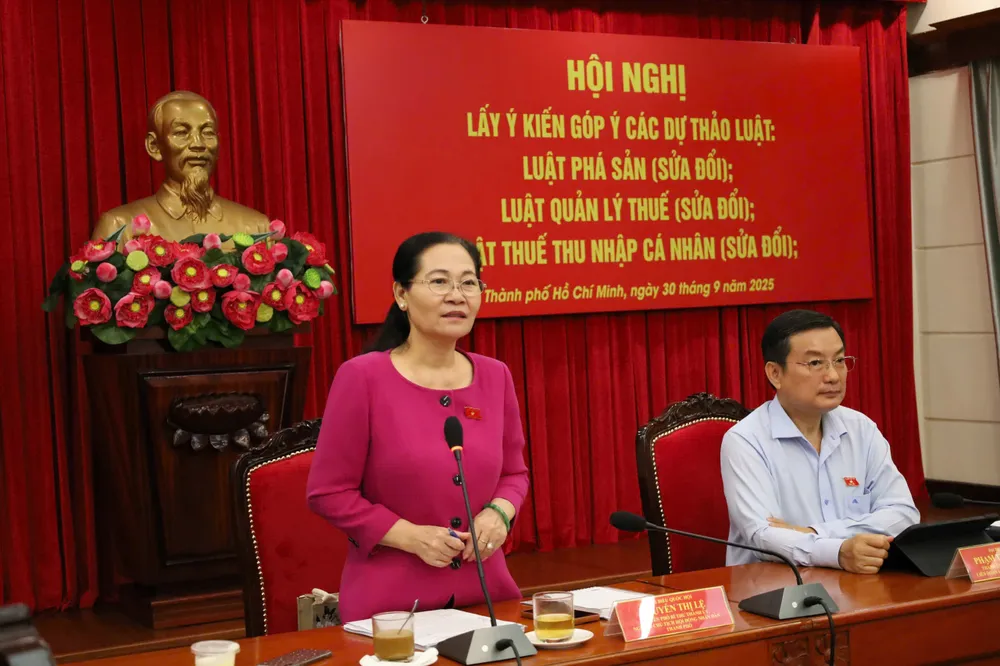
Flexible adjustment of family deduction level
At the conference, Mr. Nguyen Van Duoc, Head of the Policy Department of the Ho Chi Minh City Tax Consultants and Agents Association, said that the draft Law on Personal Income Tax (amended) received high consensus from experts, especially with the proposal to give the Government the right to adjust the family deduction level according to the socio -economic situation of each period.
The association recommends that the National Assembly clearly stipulate the update mechanism: when the consumer price index (CPI) fluctuates from 5% to 10%, the Government can adjust the deduction level, while referring to related socio-economic indicators. The proposed starting level is 18 million VND/person/year, while the deduction for dependents can choose one of two options: 7.5 million VND/year or 50% of the taxpayer's deduction level (ie 9 million VND/year, and will change flexibly in each period).
Notably, Mr. Nguyen Van Duoc also proposed to exempt personal income tax for poor households transferring long-term rental rights. According to him, currently, the owner of a single house is exempt from tax when selling, but the poor - who only rent houses long-term - if for reasons of force majeure such as changing jobs or changing residence, they have to transfer the remaining rental period, still have to pay tax. This is unfair and needs to be adjusted to ensure a humane tax policy and support for vulnerable groups.
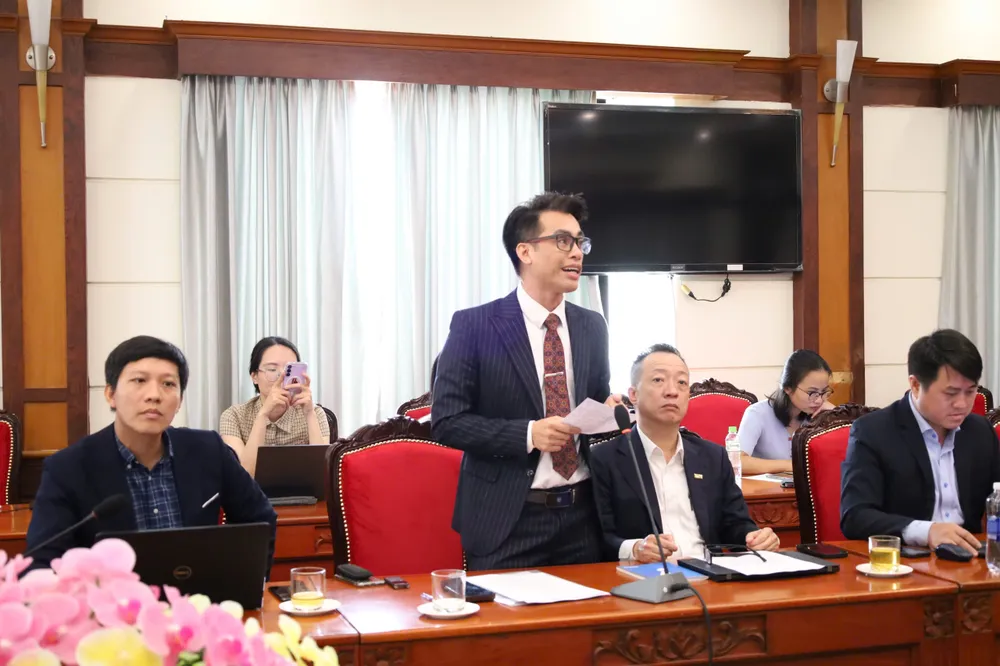
Following this opinion, the Ho Chi Minh City Business Association emphasized the need to adjust the deduction level in accordance with current economic reality and living standards, especially for dependents.
According to the Association, the deduction for dependents should be calculated based on the basic salary (about 2.5 million VND/month) and should be equivalent to 40% of the taxpayer's expenses, equivalent to about 6.6 million VND/month. This level is to reasonably support the cost of raising and caring for relatives, contributing to ensuring social justice.
The Association also proposed adding a number of specific deductions, including:
- The cost of renting a house or the interest on a loan to buy a first home , limited by a reference price, for example equivalent to a 2-bedroom social housing apartment in a suburban area , both supports people to settle down and contributes to stimulating the healthy development of the real estate market.
- Training costs for parents to improve knowledge and skills, thereby increasing employment opportunities and income for the elderly.
- Children's education expenses , apply the same mechanism as for foreigners working in Vietnam. These expenses should be specifically limited, based on public school tuition and a maximum percentage of the taxpayer's total annual income.
Consider suspending “beneficial owner” exit
Mr. Le Van Son, Head of the Training Department of the Ho Chi Minh City Tax Consultants and Agents Association, said that the regulation of both debt relief and tax debt enforcement for businesses facing difficulties due to errors from state agencies is unreasonable.
According to him, in reality, many businesses fall into tax debt not due to subjective errors, but due to slow administrative procedures such as: not yet clearing the land, not yet handing over clean land, determining land prices at the wrong time, or delaying the decision to recover, resolving complaints... These reasons are beyond the control of taxpayers, but they are still charged late payment fees and forced. Therefore, he proposed not to apply tax enforcement during the debt suspension period in the above cases, as stipulated in Point e, Clause 1, Article 20 of the draft.
Sharing the same view, the representative of the Vietnam Federation of Commerce and Industry (VCCI) - Ho Chi Minh City branch - commented on the regulation in Clause 6, Article 17 related to the temporary suspension of exit of individuals who are "beneficial owners" of enterprises that have not fulfilled their tax obligations.
Under current regulations, owning 25% or more of the capital is considered a “beneficial owner”, regardless of whether or not they have the right to manage, and this individual is only responsible within the scope of their capital contribution. In reality, many people do not participate in managing or making decisions about business activities, so applying temporary exit suspension to them would over-expand the scope of enforcement, easily leading to violations of freedom of movement, especially affecting the confidence of foreign investors.
VCCI believes that the purpose of the exit suspension measure is to put pressure on the actual operator to enforce tax obligations. Meanwhile, the tax industry currently has many effective enforcement measures such as withdrawing money from bank accounts, suspending invoices, seizing or auctioning assets... Therefore, the exit suspension measure should only be applied in special cases, to the right subjects, to avoid causing negative consequences to the investment and business environment.
Concluding the conference, comrade Nguyen Thi Le highly appreciated the contributions with rich and practical content, closely reflecting management practices, people's lives and activities of the business community.
He affirmed that the comments at the conference will be an important source of information, helping the Ho Chi Minh City National Assembly Delegation have more basis to research, synthesize, and make recommendations to the National Assembly Standing Committee and competent agencies in the process of completing draft laws.
Source: https://www.sggp.org.vn/de-xuat-tang-muc-giam-tru-gia-canh-ho-tro-ho-ngheo-trong-luat-thue-tncn-sua-doi-post815590.html



![[Photo] Prime Minister Pham Minh Chinh chairs meeting to deploy overcoming consequences of storm No. 10](https://vphoto.vietnam.vn/thumb/1200x675/vietnam/resource/IMAGE/2025/10/3/544f420dcc844463898fcbef46247d16)
![[Photo] Students of Binh Minh Primary School enjoy the full moon festival, receiving the joys of childhood](https://vphoto.vietnam.vn/thumb/1200x675/vietnam/resource/IMAGE/2025/10/3/8cf8abef22fe4471be400a818912cb85)














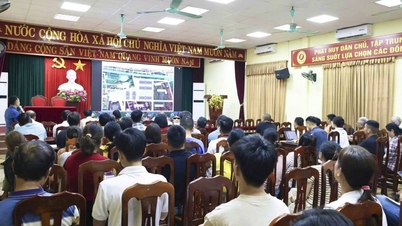





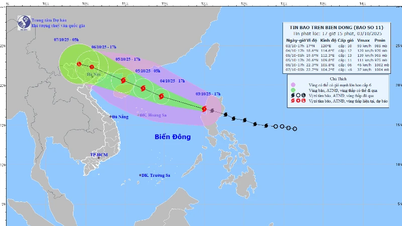





























































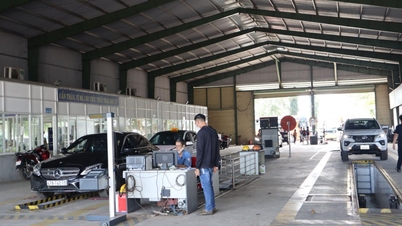


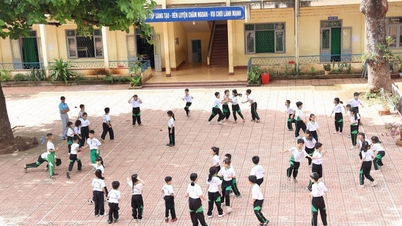
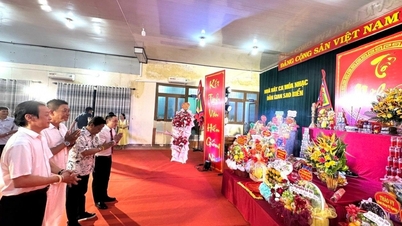













Comment (0)